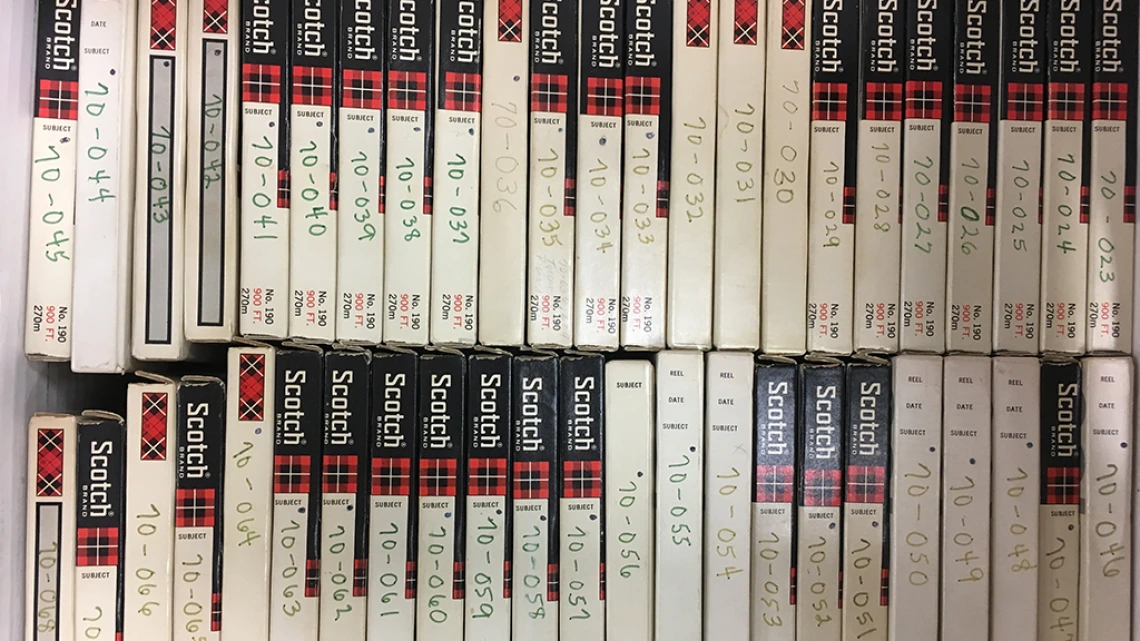Kenneth and Yetta Goodman collection

Audio recordings on magnetic reel tape related to language comprehension documenting the professional miscue research of Kenneth and Yetta Goodman (Box 12 Folder 52).
Collection area: University of Arizona
Collection dates: 1953-2015
This collection is restricted. Please contact Special Collections for more information.
Materials 1953-2015: This collection contains research project files and other materials documenting the professional miscue research of Kenneth and Yetta Goodman. Whole language is a literacy philosophy that encourages focus on meaning and strategy instruction for children who are learning how to read. The research project files focus on individual subjects and their data, documentation of the project itself, and related media. Files are both handwritten and typed dependent on the research project. Media is primarily recordings of subjects reading and rereading passages with a researcher who marks miscues and takes notes.
Materials not included with the research project files are typical office files, including: correspondence, personal and professional publications, calendars, and travel information. Documents are primarily typed, with some correspondence files being handwritten.
Kenneth S. Goodman (1927-) was Professor Emeritus at the University of Arizona. He served as past president of the National Conference on Research in English, the Center for Expansion of Language and Thinking, the International Reading Association, and the Whole Language Umbrella. Among a multitude of honors and professionally published papers, he is best known for developing the literacy theory philosophy of whole language.
Yetta M. Goodman (1931-) was Regents Professor of Education at the University of Arizona. She consulted with education departments and spoke at conferences throughout the United States and in many nations of the world regarding issues of language, teaching and learning with implications for language arts curricula. In addition to her research in early literacy, miscue analysis and in exploring reading and writing processes, she popularized the term ‘kidwatching’ encouraging teachers to be professional observers of the language and learning development of their students. She was a major spokesperson for whole language and in her extensive writing shows concern for educational issues and research with a focus on classrooms, students and teachers.
A collection guide explains what's in a collection. New to using our collections? Learn how to use a collection guide.
Collection guideHow to cite
Learn how to cite and use materials from Special Collections in your research.
